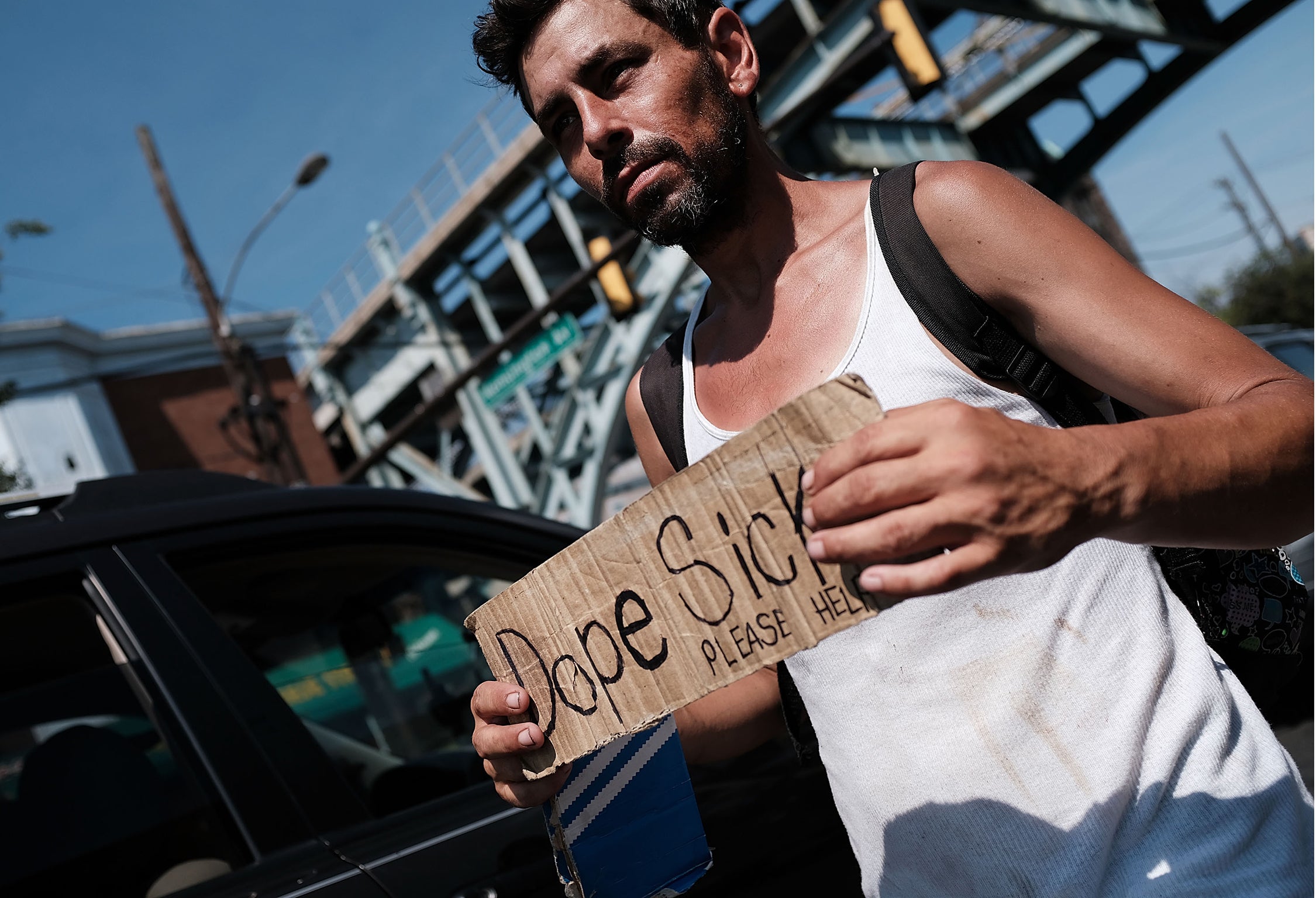'Someone needs to take the first step': Philadelphia looks to fight opioid crisis by becoming first US city to open supervised injection centres
The US is searching for new ways to fight a deadly epidemic

Your support helps us to tell the story
From reproductive rights to climate change to Big Tech, The Independent is on the ground when the story is developing. Whether it's investigating the financials of Elon Musk's pro-Trump PAC or producing our latest documentary, 'The A Word', which shines a light on the American women fighting for reproductive rights, we know how important it is to parse out the facts from the messaging.
At such a critical moment in US history, we need reporters on the ground. Your donation allows us to keep sending journalists to speak to both sides of the story.
The Independent is trusted by Americans across the entire political spectrum. And unlike many other quality news outlets, we choose not to lock Americans out of our reporting and analysis with paywalls. We believe quality journalism should be available to everyone, paid for by those who can afford it.
Your support makes all the difference.As the United States wrestles with the effects of a devastating opioid epidemic – with the Trump administration promising action, but so far delivering very little in concrete steps – attention is turning to a new programme in Philadelphia.
Local officials have announced their intention to open supervised drug injection sites, with the city facing the largest opioid death rate of any major US city. While not condoning illegal drug use, authorities hope the new approach will encourage people to get help. Experts say there is a good chance the measures could save lives and potentially encourage other cities that have considered doing so to try
“Someone needs to take the first step in the United States, and I think others will look to Philadelphia,” said Samantha Arsenault, the manager of the National Treatment Quality Initiatives for the advocacy group Shatterproof.
Philadelphia is perhaps best suited for the experiment, announced on Tuesday – overdose deaths in the city have skyrocketed in recent years, reaching 1,200 mortalities last year – nearly two and a half times the number just five years prior, and one-third more than were counted in 2016 – according to data from the Philadelphia Department of Public Health.
Those deaths represent the highest rate of overdose fatalities of any major city in the United States, which has seen an alarming spike in drug deaths overall that has continued to increase year after year. The epidemic in America is so bad that, in 2015, more people died from drug overdoses in America than the number of Americans who died in the entire Vietnam War.
Health experts say that supervised injection sites are alluring for several reasons, even if they are far from being the ultimate solution to the problem.
There are at least 90 supervised drug injection sites in the world spanning three different continents, and evidence from those facilities suggests several benefits beyond the obvious asset of having a trained professional at hand to quickly respond to overdoses, reducing deaths. A facility in Toronto, for instance, saved 139 lives in 6 months after opening last summer.
The sites provide clean needles and disposal options, reducing the risk of HIV and Hepatitis C, for instance. Those with drug misuse issue are watched when they are high, reducing the risks that they will overdose as well as reducing the likelihood they will become crime victims.
And, the sites are also an easy venue for people to seek treatment, if they offer those services.
“Assuming we’re making addiction treatment available, and available when people really need it – immediately, when they decide they want it – then I think part of what we do fro people with addiction is to make supervised injection facilities available,” Rich Saitz, the chairman of the Department of Community Health Services at Boston University, told The Independent.
Supervised injections sites have remained controversial in the United States. In Seattle, for instance, opponents of an effort to open up injection sites was met with swift opposition after the city put aside $1.3m (£900,000) to open the facilities. Communities generally worry that it will increase drug trafficking on the streets, lead to more needles being left in their neighbourhoods and that an increase in crime will follow, although experts say there is little evidence to support this.
Other attempts to open supervised injection facilities have been made across the country, including in New England, but those efforts have so far fallen short. There are, however, facilities in Massachusetts where drug users can go.
The facilities could do quite a bit to help how America talks about the problem, too, the experts noted. Drug misuse and abuse is often framed in terms of personal failure, and stigmatised as a result. All too often, people are not connecting the dots that there are medical treatments to help with addiction, and the sites could help reduce that stigma.
“I think it provides a safe space to have discussions with clients about treatment. There’s a lot of myths about what medical assisted treatment is and how ti works,” Ms Arsenault said. “Having the opportunity to have a dialogue with people who would otherwise be using drugs in their home or public areas – and be at very high risk of overdose – to have that conversation, you may create a pathway for that individual to enter treatment.”
Subscribe to Independent Premium to bookmark this article
Want to bookmark your favourite articles and stories to read or reference later? Start your Independent Premium subscription today.
Join our commenting forum
Join thought-provoking conversations, follow other Independent readers and see their replies
Comments